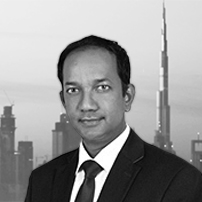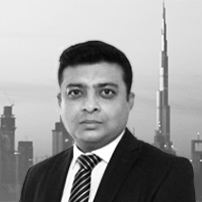MGAs must add local value

Published 07 02 2022
Michael Rafter, Group CEO and Founder of ARMA Underwriting writes for the February 2022 issue of Middle East Insurance Review magazine.

Managing General Agents that set up shop in the Middle East must do more than simply source reinsurance risk for carriers. Doing so efficiently is the essential value we add for the capacity providers that stand behind us. However, it’s not enough for the MGA market to push through as an important, valuable, and sustainable local resource in the Middle East. To do that we must deliver the tools, services, insights and support that local insurers need to meet their business goals.
MGAs underwrite and accept business on behalf of third-party risk carriers without carrying risk themselves. MGAs are relatively new in the Middle East. One of the earliest to arrive, like Arma Underwriting, set up in the Dubai International Financial Centre almost five years ago. Several more newcomers were established last year, and yet more are expected in 2022.
The reason for this influx is simple. MGAs perform a function critical to the growth of international speciality insurers. We provide expert distribution in specialist and niche markets and geographies, and do so much more cost-effectively than insurers’ local branch offices. Since it is home to a large and growing volume of insurance risks that are attractive to these insurers, the Middle East is attracting MGAs.
Recipe for success
Success for MGAs will not be automatic. If those in the DIFC are to succeed (as I hope, since a larger marketplace is vital for all), the professional underwriting services we deliver must at minimum be supported by a diverse, easily accessible range of well-rated products infused with local expertise. That will allow local insurance companies and their brokers to place more of their facultative risks at home.
“MGAs that reach the top of the pack and in the Middle East will be those that provide these complementary services at the levels cedants have come to expect from London or continental reinsurers.”
However, to thrive we must go further. Ceding companies can gain a wide range of benefits by going to local MGAs which go well beyond reinsurance capacity. They include
- high-level insights into risk analysis and business processes,
- technology support at the leading edge, and
- a partnership approach to new classes of business.
MGAs that reach the top of the pack and in the Middle East will be those that provide these complementary services at the levels cedants have come to expect from London or continental reinsurers – but very much closer to home.
We must look beyond the broker and the risk to the market’s insurers. As full-service MGAs, we should embrace our role in helping them to overcome any shortages of talent and technical expertise that still characterise the market by providing not only capacity for larger risks, but also technical support and even broader management consulting in areas such as underwriting, product development, and processes – all as an adjunct to facultative reinsurance support.
Three insurer types
Small and struggling
Several Middle East insurers are hampered by their lack of technical expertise, but are too small to attract and retain experienced, qualified staff. Their underwriters tend to be generalists who operate across multiple classes, but without the line-specific experience needed to deal successfully with larger, complex risks. Their treaty reinsurance capacity may be inadequate, or granted under restrictive terms and conditions that hinder their competitive position.
Profitable, sustainable growth may look impossible to these companies, but they present MGAs with a long-term opportunity. It is ours to grasp. To take advantage, we must develop and deploy multiple tools and services that will help such companies reverse their fortunes.
For example, a small (hypothetical) Omani insurer that underwrites motor policies may be struggling, in the current competitive environment, to turn a profit on their book. To remediate, they may wish to begin accepting higher-margin motor risks – perhaps high-value sportscars or commercial hauliers – that fall outside their comfort zone.
A motor-focussed MGA can help, but to become invaluable it must do more than simply give guidance on pricing. We need to provide local actuarial resources, a repository of relevant data, and sophisticated modelling tools. We should be able to support this expanding local insurer with analytical tools that calculate the dynamics of their entire motor portfolio, exploring the class by risk type, location, and other variables.
“Advice should extend to areas such as credit control, distribution and marketing. We should provide all of this only in anticipation of the facultative risks that will come out of an enduring and mutually beneficial relationship.”
We need to lend our experience, too. If the insurer would like to enter non-standard motor more fully, MGAs should be able to share knowledge based on experience (especially covering the pitfalls of the class) to augment their limited understanding and help them to succeed. Advice should extend to areas such as credit control, distribution and marketing. We should provide all of this only in anticipation of the facultative risks that will come out of an enduring and mutually beneficial relationship.
Mid-sized and eager
To excel, we must develop and deliver a similar set of services for the many larger and/or more successful Middle East insurers seeking growth. Many rely either on geographical prominence or on business from their commercial group. However, these advantages shield these insurers from normal market competition, which may make growth a dangerous path.
For example, a successful Saudi insurer may have two or three relatively large and profitable portfolios, and see demand from its closely-held clients to cover energy risks, but have neither the underwriters nor the track record to enter the class.
That local insurer would need external skills to squeeze more out of its existing group relationships. Another may need knowledge in bancassurance, cross-selling, or casualty trends. MGAs that can deliver insights and training in these and similar areas will help growing insurers maximise the potential of their existing clients while creating an enduring, perhaps unbreachable reinsurance relationship.
To do so, the MGA should be prepared to provide the risk data and the credibility necessary to get the insurer over the line with treaty reinsurers. Alongside technological tools and analytics, they should help with product development and differentiation, outline key performance indicators, marketing and distribution strategies, and sales training and support, and even advise on customer retention techniques.
In short, to become invaluable MGAs must act like reinsurers. We must provide a direct line to capital, reduce frictional costs, and plan to share directly in each cedant’s long-term success.
Large and hungry
The largest insurers in the Middle East are well resourced, and need far fewer external services. However, they almost certainly require external expertise – if only for a second view – and meaningful, highly rated capacity in their chosen lines of business. Both needs are greater with very large or highly complex risks.
Because of this, a significant number of these attractive risks are taken by local, regional, and especially multinational brokers straight form their point of origin in the Middle East to be underwritten in London’s facultative market. Such risks tend to return to local competitors only when London’s pricing or terms become constrained.
“MGAs must provide broad and deep expertise in all the region’s major risks and risk classes… to move business that has left the local market back into the region, where it belongs”
To break this cycle, local MGAs must provide broad and deep expertise in all the region’s major risks and risk classes. Such a strategy will ultimately help to move business that has left the local market back into the region, where it belongs.
It is perhaps a tall order, but the results will be tangible and significant. If we, the growing community of MGAs in the region, set out to give local insurers more than just capacity by delivering the varied, valuable services and insights they require to grow, succeed, and meet their diverse business goals, we will create a sustainable, profitable, reliable, and vibrant reinsurance market right here at home, where the risks live – and we will secure our places within it.
This article was first published in the February 2022 issue of the Middle East Insurance Review magazine and has been re-produced here with their kind permission.






